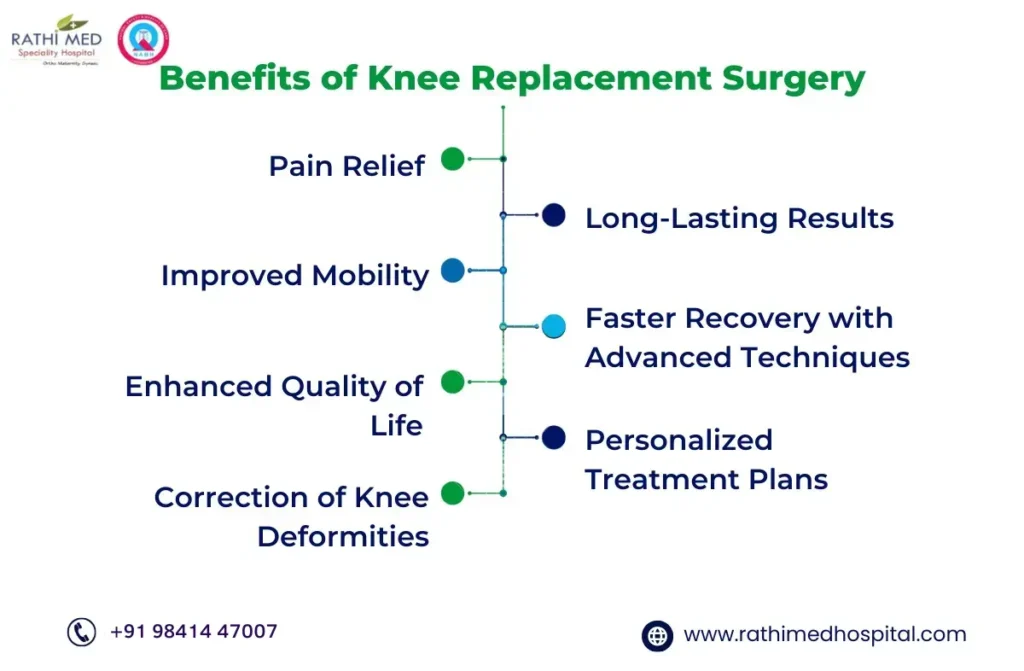If you’re dealing with persistent knee pain that affects every part of your life, you might be wondering, Who needs a knee replacement surgery? Many people facing joint issues ask this same question, hoping to find lasting relief. Knee replacement surgery is often seen as a final step after trying various treatments, but it can change lives by improving mobility and reducing pain. In this post, we’ll walk through the reasons for knee replacement, the ideal candidates, and what to expect if surgery is recommended.
Overview
Who needs a knee replacement surgery? is a question asked by individuals of all ages who are facing daily pain, limited movement, and even difficulty walking. Knee replacement surgery involves replacing damaged parts of the knee with artificial components, creating a new joint surface that moves more freely. People usually consider this option after less-invasive treatments fail to provide relief. In this post, we’ll examine the key signs that show it might be time for surgery, the process involved, and what candidates should know beforehand.
Why Is It Done?
Knee replacement surgery is often done to relieve severe pain caused by arthritis or injury. Over time, the cartilage in the knee can wear down, causing bones to rub against each other, which is very painful. For some, it might feel like there’s no escape from the discomfort, even with medication, physical therapy, or injections. For these individuals, knee replacement offers a potential solution to reclaim their quality of life.
However, it’s essential to consider the truth about knee replacement surgery. While it can bring life-changing improvements, it isn’t a magic fix for everyone. Recovery requires time, dedication to physical therapy, and the willingness to follow a detailed post-surgery plan. But for many people, the results make it all worthwhile.

Is Total Knee Replacement for You?
The question, Who needs a knee replacement surgery? comes down to whether the benefits of surgery outweigh the challenges. If you have knee pain that limits you from doing things you enjoy, like walking, gardening, or playing with grandchildren, you might be a candidate. However, total knee replacement is generally reserved for cases where the joint is severely damaged, and other treatments haven’t helped.
It’s also worth noting that age is less of a factor today than it used to be. Many younger people, especially those with severe joint injuries or advanced arthritis, can benefit from knee replacement.
When Is Surgery Recommended?
Your doctor might suggest knee replacement if you experience certain signs that it’s time to consider surgery. Here are some signs you need knee surgery:
- Persistent knee pain that doesn’t improve with rest or medication.
- Difficulty climbing stairs, walking long distances, or even standing for extended periods.
- Swelling that doesn’t go down despite treatments.
- Reduced knee mobility that affects daily life.
If any of these sounds familiar, it may be time to talk with an orthopaedic specialist to see if knee replacement could be right for you.
Candidates for Surgery
Who needs a knee replacement surgery? The ideal candidates are usually adults over 60 who have osteoarthritis, rheumatoid arthritis, or severe knee injuries. Younger people may also qualify if they have a history of joint issues that impact their lifestyle. Ideal candidates:
- Have significant pain or stiffness in the knee.
- Have tried other treatments without success.
- Are committed to the rehabilitation process after surgery.
Many people fear the disadvantages of knee replacement surgery, such as infection or implant problems, but with the right care and preparation, these risks are minimal. Consulting with a doctor can help determine if you’re a good fit for the procedure.
The Orthopaedic Evaluation
To determine if you need knee replacement surgery, your orthopaedic specialist will perform a thorough evaluation. This includes a physical examination, X-rays, and possibly an MRI. The doctor will look at how much damage the knee has endured and if there’s severe wear in the joint.
The evaluation answers the question: Who needs a knee replacement surgery? It’s a way to see how much your knee condition impacts your life and to decide if surgery is the best option based on your lifestyle, age, and health.
Risks
Every surgery carries risks, and knee replacement is no different. Some potential disadvantages of knee replacement surgery include infection, blood clots, and limited range of motion after surgery. It’s important to understand these risks so you can make an informed decision. However, many people find the benefits outweigh the risks, especially when severe pain prevents them from living fully.
How You Prepare
Preparing for knee replacement surgery requires planning. Here’s a quick checklist:
- Arrange help at home: You’ll need assistance with everyday tasks for a few weeks.
- Make necessary modifications: Set up your home so it’s easy to move around.
- Follow doctor’s orders: Your doctor may recommend exercises or ask you to avoid certain medications.
Preparing well can make recovery easier and help you feel more in control.
What You Can Expect
If you’re still wondering Who needs a knee replacement surgery? remember that while the surgery is a significant commitment, it can offer a return to a pain-free life. Recovery takes time and involves physical therapy, but many people find that after a few months, they can move comfortably and enjoy activities they once had to avoid.
During the Procedure
Knee replacement surgery generally takes a few hours. During this time, the doctor will:
- Remove damaged bone and cartilage from your knee.
- Insert an artificial knee joint.
- Test the joint to ensure it functions smoothly.
You’ll likely be asleep under anesthesia, so you won’t feel anything during the procedure.
After the Procedure
After surgery, most patients begin physical therapy within a day or two to help regain movement and build strength. Recovery involves exercises to improve mobility and reduce stiffness. While there are some initial hurdles, people often find that sticking to their recovery plan makes a huge difference.
Understanding the truth about knee replacement surgery means knowing that recovery takes dedication. Still, many patients feel the effort is worth it, as they return to activities they once enjoyed pain-free.
Who Might Need Knee Replacement Surgery?
Knee replacement surgery is typically recommended for individuals experiencing severe knee pain and mobility issues that do not improve with conservative treatments like medications, physical therapy, or lifestyle modifications. The following groups of people might need knee replacement surgery:
1. People with Severe Osteoarthritis
- Osteoarthritis is the most common reason for knee replacement.
- It causes joint cartilage to wear down, leading to pain, stiffness, and reduced movement.
2. Individuals with Rheumatoid Arthritis
- This autoimmune condition leads to chronic inflammation and joint damage.
- When medications and other treatments fail, surgery may be necessary.
3. Patients with Post-Traumatic Arthritis
- Injury-related arthritis caused by fractures, ligament tears, or cartilage damage.
- It leads to chronic pain and joint deterioration over time.
4. People with Severe Knee Deformities
- Conditions like bowed legs or knock-knees can worsen over time.
- Surgery may be needed to restore proper alignment and function.
5. Those Experiencing Chronic Knee Pain and Stiffness
- Difficulty walking, climbing stairs, or standing for long periods.
- Persistent pain even while resting or during sleep.
6. Individuals Who Have Not Responded to Conservative Treatments
- Non-surgical options like physiotherapy, weight management, and injections provide no relief.
- Knee replacement becomes the last resort for restoring mobility.
If you or a loved one experience persistent knee pain that affects daily activities, consult an orthopedic specialist to determine whether knee replacement surgery is the right option.
Conclusion
Who needs a knee replacement surgery? If knee pain and limited movement are affecting your quality of life, you may benefit from talking to a specialist about knee replacement. While surgery isn’t a quick fix, it can bring substantial relief for those who commit to recovery. Consulting with a doctor and planning for the journey can help you make the best choice for your health and lifestyle. If you’re experiencing any signs that knee surgery might be necessary, reach out to an orthopaedic specialist today to explore your options and start your path to a more active, pain-free life.
Read also Joint Treatment with Hip Arthroscopy.





